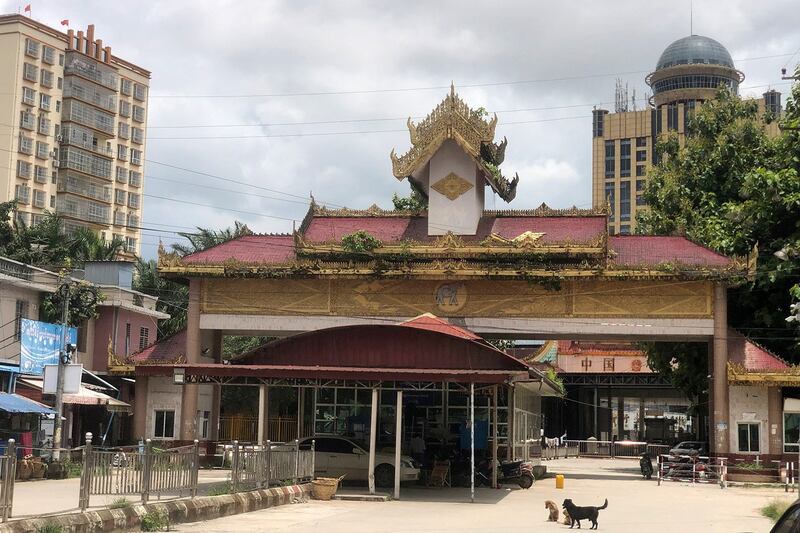More than 200 Myanmar migrant workers are deported from the Chinese border town of Ruili each day as Chinese authorities tighten immigration controls, several workers told Radio Free Asia.
Hundreds of people line up daily in Muse, a town on the Myanmar side, to cross into China to find jobs or to return to jobs they already have in restaurants, clothing stores, factories, on farms and at construction sites.
But limits on the number of people who can cross, the duration of their stay and changes to border crossing protocol have resulted in many of the workers being in violation of immigration statutes once they get to China, prompting many to be sent back, the workers said.
To gain entry into Ruili, workers need to submit a photo attached to a QR code sheet from an employer that confirms they have a job offer, a temporary seven-day border pass, health certificates and endorsements of employment agencies.
Many workers entered China without these, and if they are caught, they will be sent back, a Myanmar worker in Ruili told RFA on condition of anonymity for security reasons.
"Some police inspect and leave you alone, but others will arrest workers immediately. We cannot go outside confidently,” he said.
“We have to remain vigilant when we go to work. Good employers will get us out of arrests, but some bosses don’t care. So we always avoid the police when going to work.”
Rising costs, dropping wages
Crossing into Ruili is never easy, the worker said.
“If there is direct contact with the employer who can give guarantee, the worker can get QR code and the entry pass,” he said. “If the worker is not taken by the employer and they say they are only visiting, we are not allowed to get a QR code that would allow us to stay.”
Many of the workers enter China without the QR code, instead applying only for the temporary border pass, which allows them to stay for only seven days. After that they need to return to Myanmar or be in violation of the law.

In the past, workers could pay as little as 2,000 kyats (about US$1) to get the border pass, work a full week in China, return to Myanmar – and then buy another pass to re-enter China.
But these days, they have to pay employment agencies 200 Chinese yuan (about $28) for the QR code, making frequent border crossings unaffordable.
Since August, thousands of Myanmar people have been trying to get into China through the Muse-Ruili crossing as Myanmar’s economy has deteriorated. The influx of workers in Ruili has resulted in employers paying lower wages.
A job that previously paid 3,000 yuan ($415) per month now only pays around 1,500, a resident of Muse said. Still, thousands line up to get into China every day.
He said that the throngs of workers in Muse incur many expenses even before they get to China.
“They have high travel costs and have to pay for staying at dormitories,” he said. “It takes about 10 to 20 days to receive the documents.”
‘Like chickens in baskets’
RFA attempted to contact officials in the Chinese Embassy in Yangon, as well as the Myanmar Consulate in Yunnan province, but neither responded to requests for comment on the situation
A spokesperson for the Myanmar junta in Shan State, where Muse is located, did not answer queries into the matter.
Rules for sending laborers between Myanmar and China state that legally employed workers need to return to Myanmar three times each year and apply for reentry.
But in practice, the rules are confusing and the new QR system leaves many vulnerable to deportation, which leaves them at the mercy of their employers, an observer of Myanmar labor issues told RFA on condition of anonymity for personal safety.
“These workers can be arrested, jailed and deported anytime. They are like chickens in baskets,” he said. “The employment contract favors the employers without fixing rates for working hours, overtime fee and bonuses.”
Translated by Aung Naing. Edited by Eugene Whong.
